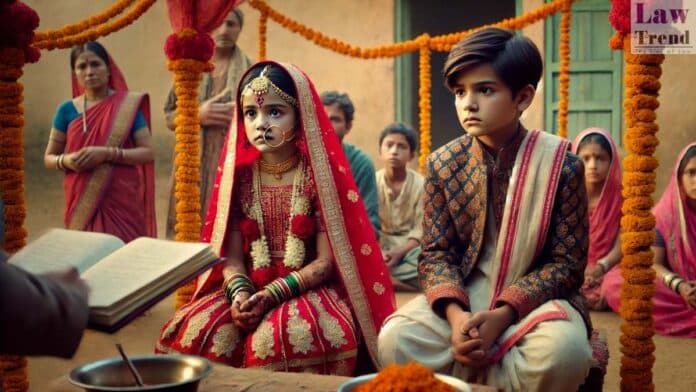On Friday, the Supreme Court, led by Chief Justice D.Y. Chandrachud, issued a series of directives aimed at strengthening the enforcement of the Prohibition of Child Marriage Act, 2006. The court highlighted that child marriage strips children of their “agency, autonomy, and right to fully develop and enjoy their childhood.”
During the proceedings, the bench, which also included Justices JB Pardiwala and Manoj Misra, addressed a public interest litigation (PIL) that raised concerns about the persistently high rates of child marriages in India. The court emphasized the need for Child Marriage Prohibition Officers (CMPOs) to be appointed at the district level without being burdened with additional duties that might detract from their primary focus.
The Supreme Court’s ruling underscored the role of CMPOs as more than just a statutory requirement; it highlighted their critical function in building community connections, collaborating with local organizations, and addressing the specific factors driving child marriages in their districts.
The Supreme Court ordered that states and Union Territories appoint dedicated CMPOs in each district. These officers are to be provided with sufficient resources to perform their duties effectively, without the distraction of other responsibilities.
The CMPOs are authorized to prosecute anyone who facilitates, solemnizes, or supports child marriages. This includes not just the actual conduct of a marriage but also those who promote or endorse such practices publicly.
The court suggested that Special Juvenile Police Units be integrated into the framework for preventing child marriages, enhancing the enforcement capabilities against such illegal activities.
Magistrates are encouraged to take proactive steps, such as issuing suo motu injunctions to prevent child marriages, especially during ‘auspicious days’ known for mass weddings.
The possibility of establishing special fast-track courts dedicated to handling child marriage cases was suggested to ensure expedited proceedings.
Furthermore, the Supreme Court has directed the creation of an online portal for reporting child marriages, managed by the Union Ministry of Home Affairs in collaboration with the Ministry of Women and Child Development and the National Legal Services Authority (NALSA). This portal will allow for anonymous reporting and serve as a centralized platform for data collection and analysis.




